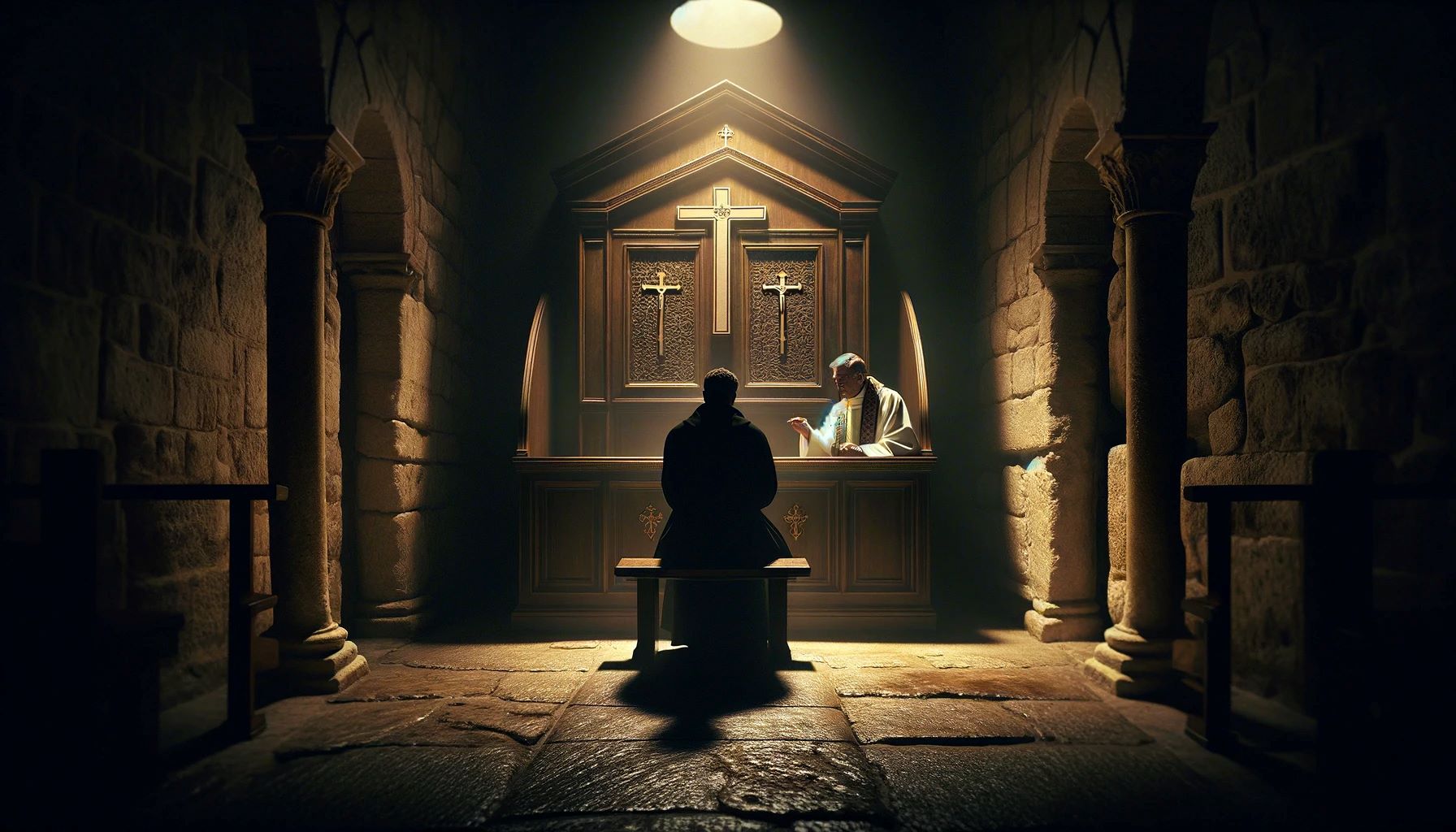Home>Christian Life>What Is The New Hampshire Confession Of Faith


Christian Life
What Is The New Hampshire Confession Of Faith
Published: March 4, 2024
Jason DeRose, Managing Editor at Christian.net, uses his expertise in religion and journalism to deepen understanding of faith's societal impacts. His editorial leadership, coupled with a strong academic background, enriches the platform’s diverse content, earning him recognition in both journalism and religious circles.
Discover the core beliefs and principles of the Christian life outlined in the New Hampshire Confession of Faith. Explore its significance and impact on Christian communities.
(Many of the links in this article redirect to a specific reviewed product. Your purchase of these products through affiliate links helps to generate commission for Christian.net, at no extra cost. Learn more)
Table of Contents
Introduction
What is the New Hampshire Confession of Faith? The New Hampshire Confession of Faith is a statement of Christian beliefs and principles that originated in the United States in the 19th century. It serves as a guide for the beliefs and practices of churches that adhere to its doctrines. This confession of faith provides a framework for understanding the core tenets of the Christian faith and has been influential in shaping the beliefs of many congregations and denominations. In this article, we will explore the history, key beliefs, influence, and modern relevance of the New Hampshire Confession of Faith.
Read more: What Is A Confession Of Faith
History of the New Hampshire Confession of Faith
The New Hampshire Confession of Faith was first formulated in 1833 at the New Hampshire Baptist Convention. It was created as a response to the need for a clear and concise statement of faith that could be used as a unifying standard among Baptist churches in the region. The committee responsible for its creation included such prominent figures as John Newton Brown and Ichabod Smith. The confession was officially adopted in 1833 and has since been widely used by Baptist churches and other Christian denominations as a statement of their beliefs. The New Hampshire Confession of Faith was intended to provide a clear and comprehensive outline of the fundamental doctrines of the Christian faith, serving as a guide for individual believers and congregations.
The confession consists of 18 articles that cover essential theological topics such as the nature of God, the authority of the Bible, the fall of man, salvation through Jesus Christ, the church, baptism, and the Lord's Supper. The language used in the confession is precise and carefully chosen to convey the beliefs and principles of the Christian faith. Over the years, the New Hampshire Confession of Faith has been widely recognized and accepted as a reliable statement of Christian doctrine, and it continues to be influential in shaping the beliefs and practices of many churches and denominations.
The New Hampshire Confession of Faith has stood the test of time and remains a significant document in the history of Christian theology in the United States. Its enduring legacy is a testament to its relevance and importance in guiding the beliefs and practices of countless believers and congregations.
Key Beliefs and Principles
-
The Scriptures: The New Hampshire Confession of Faith affirms the divine inspiration, authority, and sufficiency of the Bible as the ultimate and infallible rule of faith and practice for Christians. It emphasizes the importance of the Scriptures as the foundation for all Christian beliefs and the guide for living a godly life.
-
The Trinity: This confession upholds the doctrine of the Trinity, affirming the existence of one God in three persons: the Father, the Son (Jesus Christ), and the Holy Spirit. It acknowledges the equality and unity of the three persons in the Godhead.
-
Salvation: The New Hampshire Confession of Faith articulates the belief in the salvation of sinners by grace alone, through faith in Jesus Christ alone. It emphasizes the atoning work of Christ on the cross and the necessity of repentance and faith for the forgiveness of sins and reconciliation with God.
-
The Church: It outlines the nature and purpose of the church as a community of believers, called out by God, and united in Christ. It emphasizes the importance of the ordinances of baptism and the Lord's Supper as symbolic acts of obedience and remembrance.
-
The Last Things: The confession addresses the future return of Christ, the resurrection of the dead, the final judgment, and the eternal state of both the saved and the lost. It underscores the hope of eternal life for believers and the reality of eternal punishment for the unrepentant.
-
Religious Liberty: The New Hampshire Confession of Faith advocates for religious freedom and the separation of church and state. It affirms the individual's right to worship according to their conscience and rejects the imposition of religious beliefs by civil authorities.
These key beliefs and principles form the foundation of the New Hampshire Confession of Faith, providing a comprehensive framework for understanding the core doctrines of the Christian faith and guiding the beliefs and practices of adhering churches and denominations.
Influence and Adoption
The New Hampshire Confession of Faith has exerted a significant influence on the beliefs and practices of numerous churches and denominations since its adoption in 1833. Its clear and concise articulation of essential Christian doctrines has made it a valuable resource for guiding theological understanding and shaping the identity of Christian communities. The confession's emphasis on the authority of the Scriptures, the Trinity, salvation by grace through faith, and the nature of the church has resonated with many believers and has been instrumental in fostering doctrinal unity among various congregations.
The adoption of the New Hampshire Confession of Faith by Baptist churches and other Christian denominations has provided a common doctrinal foundation, promoting unity and cooperation among diverse congregations. Its influence extends beyond the United States, as it has been embraced by churches in other countries seeking to articulate their beliefs in a clear and systematic manner. The confession's widespread adoption reflects its enduring relevance and the universal appeal of its theological principles.
Furthermore, the New Hampshire Confession of Faith has played a crucial role in theological education and training. Many seminaries, Bible colleges, and theological institutions have utilized this confession as a teaching tool to instruct students in the foundational doctrines of the Christian faith. Its influence in shaping the curriculum and theological perspectives of future church leaders has contributed to the perpetuation of its doctrinal principles across generations.
The confession's adoption by numerous churches and denominations underscores its enduring significance as a unifying statement of faith. Its influence has transcended denominational boundaries, serving as a unifying force among believers who share a commitment to its core beliefs. The New Hampshire Confession of Faith continues to be a guiding light for Christian communities seeking to uphold the timeless truths of the Christian faith and remain steadfast in their doctrinal convictions.
Comparison with Other Confessions of Faith
The New Hampshire Confession of Faith distinguishes itself from other confessions of faith through its concise and specific articulation of essential Christian doctrines. While some confessions may delve into intricate theological details and historical contexts, the New Hampshire Confession of Faith presents a streamlined and accessible overview of core beliefs. Its brevity and clarity make it particularly suitable for guiding the beliefs and practices of churches and denominations, especially those seeking a comprehensive yet easily understandable statement of faith.
In contrast to confessions that may be closely associated with a particular denomination or theological tradition, the New Hampshire Confession of Faith has garnered widespread acceptance across various Christian denominations. Its broad appeal and universal recognition have contributed to its role as a unifying standard for believers who may come from diverse theological backgrounds. This inclusivity sets it apart from confessions that are more closely aligned with specific denominational perspectives, allowing the New Hampshire Confession of Faith to serve as a unifying doctrinal foundation for a wide range of Christian communities.
Furthermore, the New Hampshire Confession of Faith's emphasis on the authority of the Scriptures, the Trinity, salvation by grace through faith, and the nature of the church aligns it with the core beliefs of many other confessions of faith. While there may be nuanced differences in the wording and organization of doctrinal statements, the fundamental principles espoused by the New Hampshire Confession of Faith resonate with the foundational tenets of numerous other confessions. This common ground facilitates dialogue and cooperation among believers who adhere to different confessional traditions, fostering a spirit of unity and mutual understanding within the broader Christian community.
In summary, the New Hampshire Confession of Faith stands out for its accessibility, universal appeal, and capacity to serve as a unifying doctrinal standard across diverse denominational and theological contexts. While it shares common ground with other confessions of faith in its affirmation of essential Christian doctrines, its brevity and inclusivity set it apart as a valuable resource for guiding the beliefs and practices of a wide spectrum of Christian communities.
Read more: What Is The Sacrament Of Confession
Modern Relevance and Usage
In the contemporary landscape of Christianity, the New Hampshire Confession of Faith continues to hold significant relevance and finds widespread usage among churches and denominations. Its enduring appeal lies in its timeless articulation of essential Christian doctrines, providing a solid doctrinal foundation for believers navigating the complexities of the modern world. The confession's concise and accessible format makes it well-suited for addressing the theological needs of today's congregations, offering a clear and comprehensive framework for understanding the core tenets of the Christian faith.
Moreover, the New Hampshire Confession of Faith serves as a valuable tool for guiding the theological identity and practices of churches in an era marked by diverse theological perspectives and doctrinal interpretations. Its universal recognition and acceptance enable it to transcend denominational boundaries, fostering unity and cooperation among believers who share a commitment to its fundamental beliefs. This inclusivity makes it an invaluable resource for promoting doctrinal unity and theological clarity within the broader Christian community.
In addition, the confession's emphasis on the authority of the Scriptures, the Trinity, salvation by grace through faith, and the nature of the church addresses the contemporary challenges and questions faced by believers in a rapidly changing world. It provides a solid doctrinal anchor amidst cultural shifts and theological debates, equipping believers to engage with the complexities of modern society while remaining steadfast in their faith.
Furthermore, the New Hampshire Confession of Faith continues to be utilized in theological education and training, shaping the curriculum and theological perspectives of future church leaders. Its relevance in educational settings ensures that its doctrinal principles are perpetuated across generations, equipping the next wave of Christian leaders with a firm grasp of essential Christian doctrines.
Overall, the New Hampshire Confession of Faith's modern relevance and usage stem from its ability to provide a timeless and accessible framework for understanding the core beliefs of the Christian faith. Its enduring significance in guiding the beliefs and practices of contemporary churches and denominations underscores its continued relevance as a unifying statement of faith in the ever-evolving landscape of Christianity.














